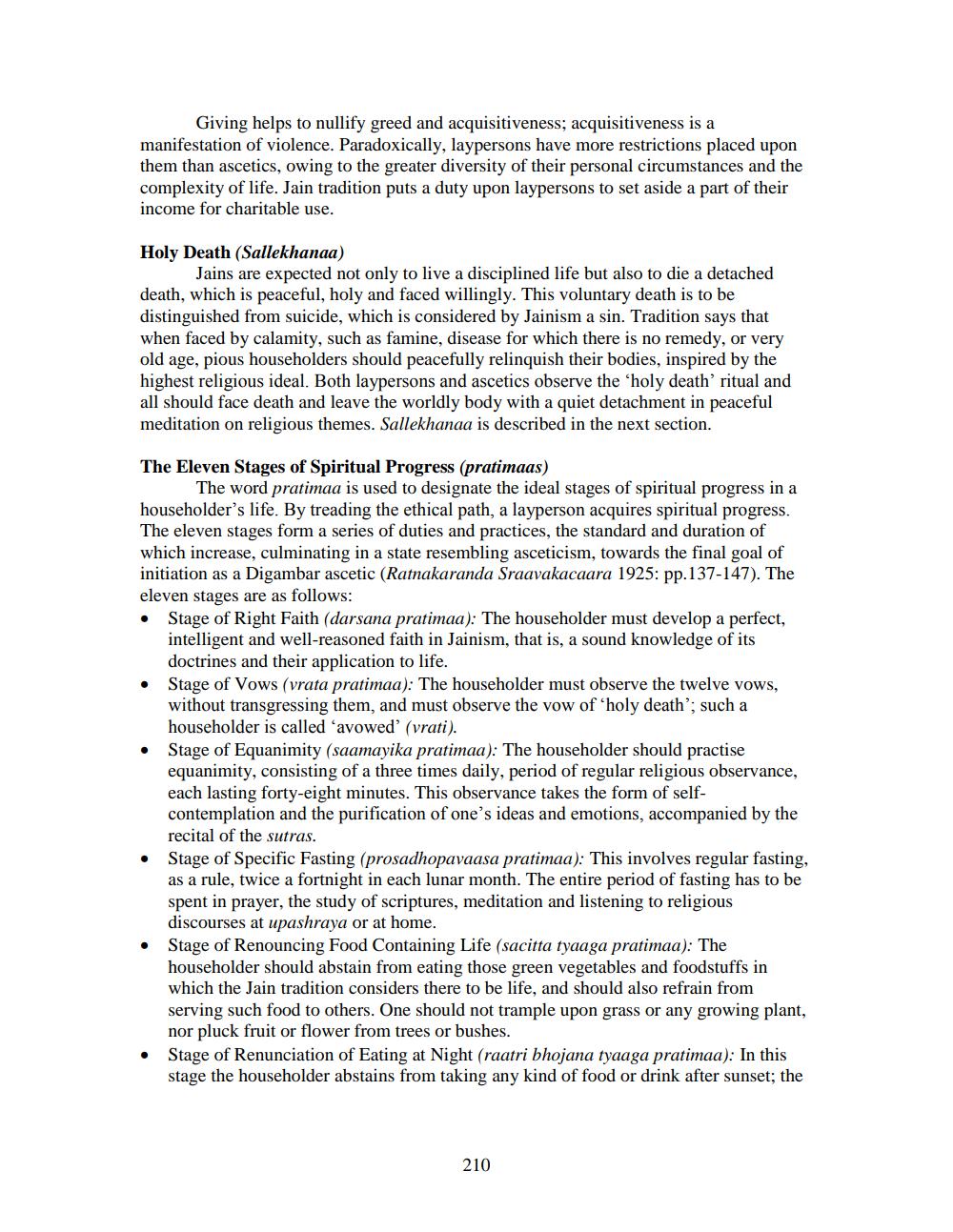________________
Giving helps to nullify greed and acquisitiveness; acquisitiveness is a
manifestation of violence. Paradoxically, laypersons have more restrictions placed upon them than ascetics, owing to the greater diversity of their personal circumstances and the complexity of life. Jain tradition puts a duty upon laypersons to set aside a part of their income for charitable use.
Holy Death (Sallekhanaa)
Jains are expected not only to live a disciplined life but also to die a detached death, which is peaceful, holy and faced willingly. This voluntary death is to be distinguished from suicide, which is considered by Jainism a sin. Tradition says that when faced by calamity, such as famine, disease for which there is no remedy, or very old age, pious householders should peacefully relinquish their bodies, inspired by the highest religious ideal. Both laypersons and ascetics observe the 'holy death' ritual and all should face death and leave the worldly body with a quiet detachment in peaceful meditation on religious themes. Sallekhanaa is described in the next section.
The Eleven Stages of Spiritual Progress (pratimaas)
The word pratimaa is used to designate the ideal stages of spiritual progress in a householder's life. By treading the ethical path, a layperson acquires spiritual progress. The eleven stages form a series of duties and practices, the standard and duration of which increase, culminating in a state resembling asceticism, towards the final goal of initiation as a Digambar ascetic (Ratnakaranda Sraavakacaara 1925: pp.137-147). The eleven stages are as follows:
• Stage of Right Faith (darsana pratimaa): The householder must develop a perfect, intelligent and well-reasoned faith in Jainism, that is, a sound knowledge of its doctrines and their application to life.
• Stage of Vows (vrata pratimaa): The householder must observe the twelve vows, without transgressing them, and must observe the vow of 'holy death'; such a householder is called 'avowed' (vrati).
Stage of Equanimity (saamayika pratimaa): The householder should practise equanimity, consisting of a three times daily, period of regular religious observance, each lasting forty-eight minutes. This observance takes the form of selfcontemplation and the purification of one's ideas and emotions, accompanied by the recital of the sutras.
Stage of Specific Fasting (prosadhopavaasa pratimaa): This involves regular fasting. as a rule, twice a fortnight in each lunar month. The entire period of fasting has to be spent in prayer, the study of scriptures, meditation and listening to religious discourses at upashraya or at home.
Stage of Renouncing Food Containing Life (sacitta tyaaga pratimaa): The householder should abstain from eating those green vegetables and foodstuffs in which the Jain tradition considers there to be life, and should also refrain from serving such food to others. One should not trample upon grass or any growing plant, nor pluck fruit or flower from trees or bushes.
• Stage of Renunciation of Eating at Night (raatri bhojana tyaaga pratimaa): In this stage the householder abstains from taking any kind of food or drink after sunset; the
210




